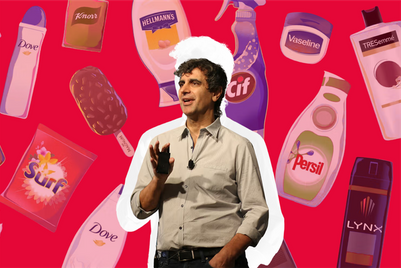
“In rural areas it is all about pricing,” says Joseph Tan, country advisor of Lowe Indonesia. “You can market all you want but if the pricing is wrong then it won’t succeed.”
Lulut Asmoro, president of JWT Indonesia, says another hurdle for MNCs is that international brands just don’t have an understanding of rural consumers. “I think the information on habits of rural consumers, how they live and what they consume, is not readily available. Nielsen research only covers certain key cities in Indonesia. ”
Brands that have made an effort to understand the rural consumer and have introduced modifications in their products and marketing programmes have tasted success. McDonald’s Indonesia offers a fried chicken and rice dish, based on an understanding that rice is the staple food of Indonesians. Marlboro also launched a Kretek, or clove cigarette, called Marlboro Mix 9 in 2007, keeping in mind that white cigarette consumption is below 10 per cent in the country.
Similarly, one of the big success stories in Indonesia is that of a biscuit brand named Biskuat owned by Kraft. The brand, launched with extra calcium and vitamins to appeal to low-income consumers and provide affordable nutrition, has proven extremely popular. The company has since introduced Milkuat, a dairy drink with added nutrients, which sold more than 10 million bottles in its first three months. It now holds an 11 per cent market share in Indonesia.
“Without changing the brand essence, MNCs need to modify locally,” says Agus Sudradjat, president director of Grey Group Indonesia. “In order to speak to a young, rural demographic, brands need to be simple and straightforward in their communication.”
Tan, however, thinks that introducing modifications in products for the Indonesian rural market might be too expensive for some brands, and that the recipe for success lies in ensuring a good distribution and the right marketing approach. “Rural consumers are very open to trying out new products. I think the ability of clients and brands to socially re-engineer consumers’ mindsets is really important. Brands should stop focusing on a 30-second TVC and invest in strong on-the-ground activation. ”
Tan gives the example of Lowe’s client Sprite, which recently launched a Dangdut Idol competition, engaging the rural population using a form of Indonesian traditional dance. Localised marketing programmes like these have helped improve Sprite’s market share, which is greater than Coca-Cola’s in Indonesia. Biskuat has also been running initiatives like Biskuat Akademi Juara - a nationwide event that coaches, trains and inspires the next generation of champions and gives them a chance to achieve their aspirations.
Strong local brands, which are competitively priced and tailored to local tastes have also made it very difficult for international brands to penetrate the market. Indonesia is probably the only country in the world where a local tea drink like Teh Botol Sosro commands a bigger market share than Coca-Cola.
According to Sudradjat, it is important for MNCs to recognise this fierce local competition. “MNCs tend to be more strict with rules and regulations. Local brands are more flexible, more down-to-earth and offer practical promotions.”
This article was originally published in the 11 March 2010 issue of Media.


.jpg&h=334&w=500&q=100&v=20250320&c=1)
.jpg&h=334&w=500&q=100&v=20250320&c=1)
.jpg&h=334&w=500&q=100&v=20250320&c=1)



.png&h=334&w=500&q=100&v=20250320&c=1)

.png&h=334&w=500&q=100&v=20250320&c=1)

.jpg&h=268&w=401&q=100&v=20250320&c=1)
.jpg&h=268&w=401&q=100&v=20250320&c=1)





